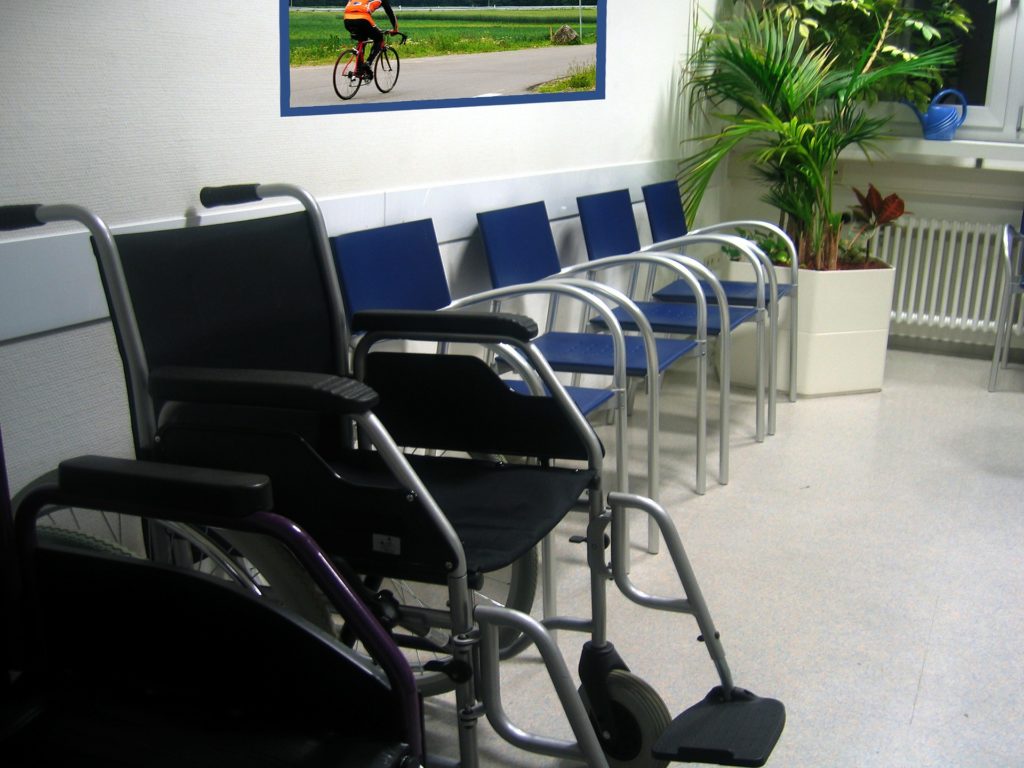When it comes to preventing hospital readmissions and controlling costs after joint replacements and similar procedures, home health agencies and other post-acute providers play a crucial role. But agencies may gain an advantage if they also are involved before a patient even enters the hospital for treatment.
“We don’t like to use the word post-acute anymore,” says Keith Myers, CEO of LHC Group (NASDAQ: LCHG). “We say regularly now that we’re not post-acute, we’re non-acute. In many of our hospital joint ventures, we’re having just as big an impact on the pre-acute side.”
LHC Group is in a particularly good position to comment on the evolving relationship between home health providers and hospitals. Hospital joint ventures have long been a niche play for the Lafayette, Louisiana-based company, which employs more than 10,000 people and has a 25-state footprint. About 50% of LHC’s revenue comes from JV relationships with hospitals and health systems, Myers pointed out in a recent conversation with Home Health Care News.
Currently, LHC Group has partnered with more 60 hospitals and health systems, including a recently inked JV with Baton Rouge General Hospital. Preventing “costly and avoidable hospital readmissions” is one of the key objectives of that venture, Myers stated in a press release when the deal was announced earlier this month. And preventing readmissions is a goal that many home health providers now have—Affordable Care Act policies mean hospitals face Medicare reimbursement cuts if they readmit too many patients, incentivizing them to work more exclusively with home health agencies that can stop that from happening.
Since forging its first hospital joint venture in 1998, just four years after its founding, LHC has developed a time-tested approach to prevent rehospitalizations.
“The critical first step is to have the ability to risk-stratify your patient population and to update that on a regular basis,” Myers says. “If we have 500 patients on census at one of our JV locations, we have to know which 50 are highest risk and focus additional resources—which we don’t typically get reimbursed for in fee-for-service—to those patients, to bend the cost curve by avoiding unnecessary inpatient costs.”
A call center at the LHC home office takes calls from the field, and workers there follow scripts so that they can efficiently triage alerts and deploy caregivers to intervene before a hospital readmission is necessary, Myers says. Utilizing high-skilled clinicians such as nurse practitioners is another key part of the strategy.
“We’ve learned over 22 years, that’s how you avoid the rehospitalizations,” he says.
But a singular focus on rehospitalization may not be enough to be a stand-out hospital partner these days. Recent Medicare initiatives, such as a bundled payment program for hip and knee replacements, make it imperative for hospitals and their partners to keep quality high while making the episode of care as cost-efficient as possible. Here, a pre-acute focus is a differentiator, Myers says.
“We’re helping to drive value in the hospitals that are in those [hip and knee] bundles,” he says, “I don’t have the data readily available, but I’ll take a shot and say one-third or more of the value we’re creating is coming from our interaction with patients on a pre-acute basis. Planning the care path before surgery is resulting in reduction in length-of-stay by about 30% to 35% on those patients. So it’s not just reducing rehospitalization, but bringing down length-of-stay post-op. And, they’re moving out of the hospital to home health faster because of our interaction.”
LHC Group is not the only home health provider that sees itself occupying the “non-acute” category; the concept has been embraced by the Partnership for Quality Home Healthcare, a provider association that Myers currently chairs. LHC Group also certainly is not the only provider pursuing hospital partnerships—and the volume of potential transactions in its docket indicates just how avid hospitals are to find the right “non-acute” partners.
As of the third quarter of 2015, LHC Group had reviewed more than 264 acquisition or hospital JV opportunities, Myers said on an earnings call in November. While he did not share exact updated numbers in advance of this week’s upcoming earnings release, he indicated that the pipeline is not getting any smaller.
Written by Tim Mullaney




